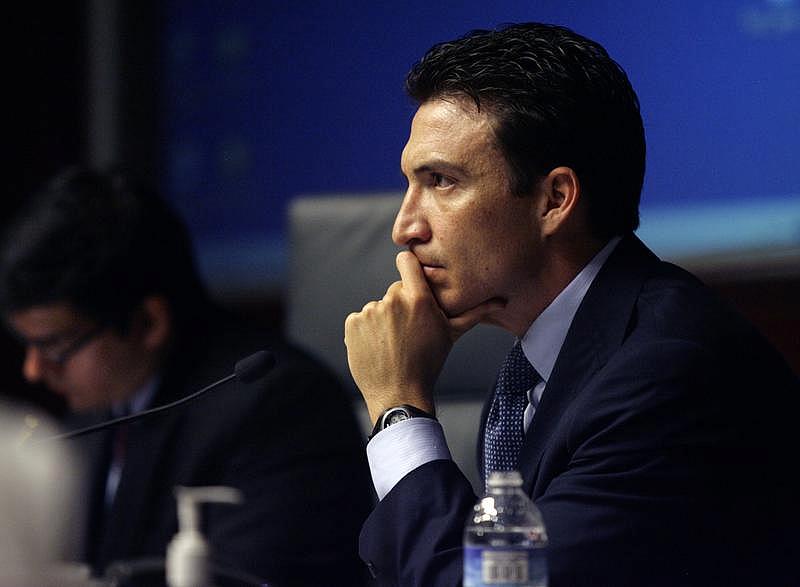Just One Breath: Senate resignation provides a lesson in journalism results

Former California State Sen. Michael Rubio Photo credit: Felix Adamo/The Californian
When reporters complete a big project, they want to be able to report on consequences from the story.
Whether the subject is a money-squandering government agency or a looming public health threat or a failing school system, reporters want to be able to say something changed as a result of their reporting. If that change happened within days of the stories being published, all the better.
Journalists don't go into this field to get rich, especially not in today's media climate. Making a difference is the real reward.
Seeing tangible results also helps them make the case with their editors that they should be able to spend more time on big, important projects and less time covering parades, and it helps them when they submit their project for awards. Contests often ask for reporters to explain “subsequent results” from their stories. So an award letter might start like this:
One week after the Beacon-Bugle published “The Monster In Your Couch,” the U.S. Senate Upholstery Committee convened a panel on sectional security.
That’s why many of us involved with the Just One Breath project about valley fever were disappointed when we heard that California Sen. Michael Rubio was resigning from the state Senate in February to take a job in government affairs at Chevron. Just as our series was getting started last fall, Rubio did the thing that reporters are always wishing more legislators would do. He convened a town hall meeting in October 2012 to invite San Joaquin Valley residents to tell him about the disease, and he promised to “develop legislation that will help us in this continued fight against Valley Fever.”
In February, Valley Public Radio reporter Rebecca Plevin was putting the finishing touches on a story about how that promised legislation was progressing when Rubio announced he was resigning. We were literally about to publish a piece discussing the formation of a Valley Fever Committee in the state Senate and specific plans for at least two new bills in the legislature. Rubio’s resignation put that on hold.
Then the other shoe dropped. Rubio had been involved in land deals with an oil company executive that raised questions about conflicts of interest, especially given Rubio’s efforts to weaken the state’s environmental laws.
This seemed to effectively kill any momentum that had been started in October by Rubio’s town hall meeting in Bakersfield. So Rebecca did what all good reporters do. She started asking her sources. What did they think about Rubio’s departure, and what were they doing about valley fever now that he was no longer in a position to take any legislative action?
It turns out people weren’t waiting around for another politician to make a promise. One of her first calls was to Tammy Schaefer, a California winemaker whose husband was stricken with valley fever a few years ago. As Plevin wrote:
‘When I heard that (Rubio) had resigned, I was completely deflated and felt like everything we’d been working toward and fighting for was going to be completely lost,’ Tammy Schaefer said. She had already begun collecting stories of valley fever patients whose diseases went misdiagnosed to support Rubio’s physician education bill.
But about three weeks after Rubio’s resignation, the Schaefers and others are feeling hopeful again, buoyed by steps — albeit small ones — that indicate lawmakers’ continued interest.
Plans are clearly just getting underway. Plans for more funding for research at some California universities. Plans to keep the Valley Fever Committee alive.
But one of the best things about Rubio’s resignation is that it forced everyone to take a harder look at what was actually being done to address the very real toll that valley fever takes on people every year. It was a reminder, too, that just because a politician calls for a hearing doesn’t mean anything will ultimately happen.
Tell that to the award committee. And to the community that may need to take steps to show another crop of politicians why they should care.

